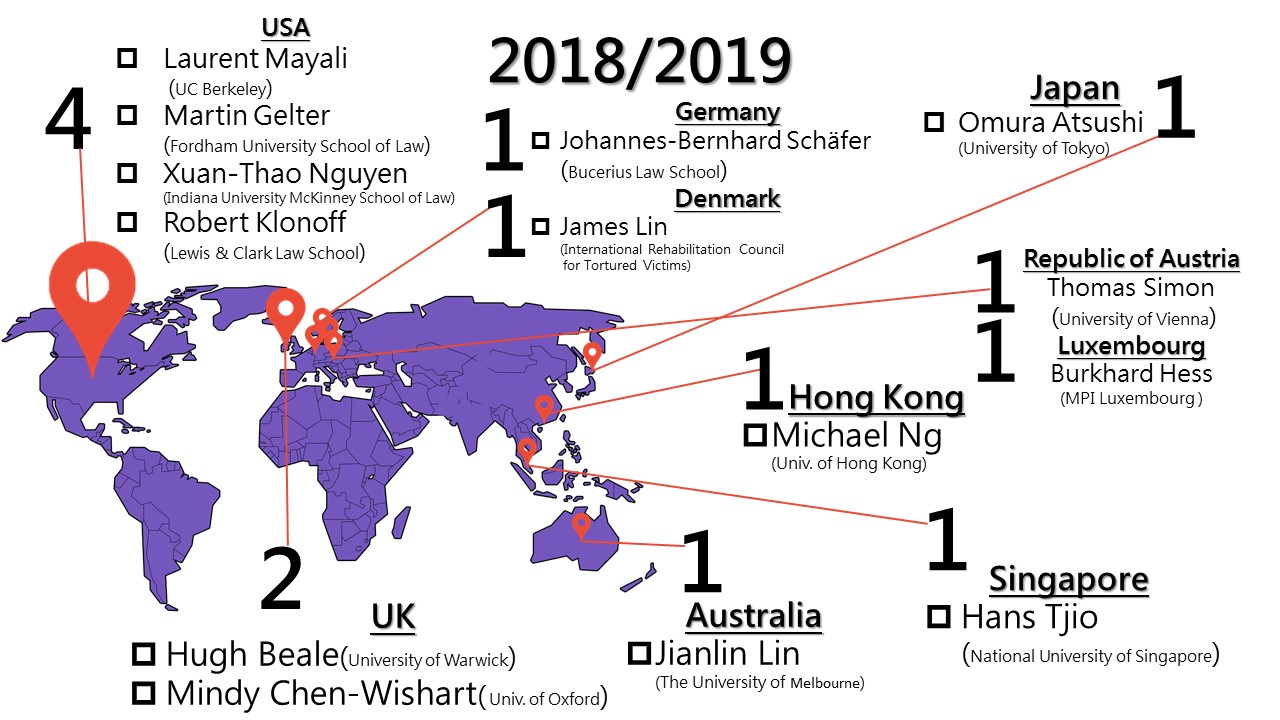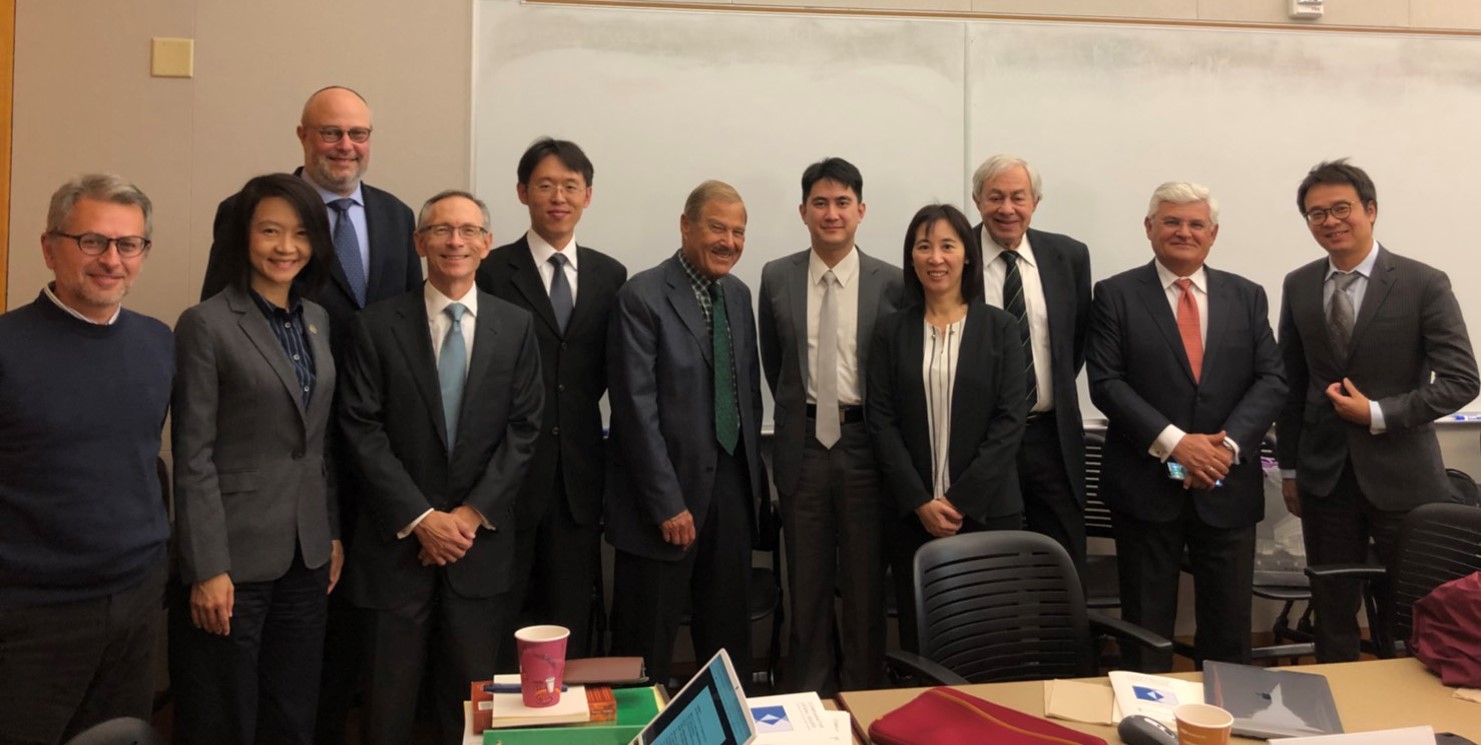Courses conducted in English
We invite international scholars and professors from world-known universities (i.e., Kyoto University, UCLA, and UC Berkeley) to be visiting scholars. They will instruct short-term intensive courses on different legal issues.
The intensive courses not only help students to broaden their law concepts worldwide, but also improve their course understanding ability in an English setting.
2018/2019 Visiting Professors
For more information, please visit the following website:
http://www.law.ntu.edu.tw/index.php/peoples/visiting-professors
Joint (Dual) Degree Program
The Joint (Dual) Degree Program allows students to earn a degree from both NTU and partner institutions. Students who apply for the program can take advantage of credit transfer, tuition fee discounts, and completing research program abroad. After completion of their studies at both institutions, the student will be conferred a degree from both NTU and the partner institution.
About the Joint (dual) degree agreement, there are two regimes.
The first regime is “mutual enrollment type,” that is, student from both side (NTU or Partner institution) can join the Joint (dual) degree program. After completing the graduation requirement from both law schools, the student will be conferred a Joint (Dual) Degree. There might be mutual credit recognition between NTU and the partner institution. We just built an agreement with UHH on Doctoral Degree under this regime recently.
The second regime is “unilateral enrollment type”, that is, only NTU students will join this Joint (Dual) Degree Program. From the partner institutions’ standpoint, you can regard the NTU student as an ordinary student. The student will solely complete the graduation requirement the program at the partner institution, and be conferred the degree from the partner institution.
Basically, this regime just provide a preferential admission way for NTU students. For example, the student can choose to enroll in the partner institution after completing one-year study at NTU. After the one year study at NTU, the student will move on and complete the study at the partner institution. After completing the study at the partner institution, the student will then come back to NTU to finish the degree at NTU. In fact, the degrees are separately-awarded. We built up this regime with law schools in Netherlands, USA and UK.
The following table is a comparison chart for the two regimes
| Regimes | Qualified Student | Degree | |
| Mutual Enrollment | Students from NTU or Partner Institutions | There might be mutual credit recognition or joint supervision between NTU and UHH | Joint (Dual) Degree conferred by NTU and partner institution |
| Unilateral Enrollment | Only NTU students | Same as ordinary student in UHH LLM program | Joint (Dual) Degree is separately conferred by NTU and partner institution. |
For more information, please visit the following website:
http://www.law.ntu.edu.tw/index.php/admissions/joint-degree-admissions
International Cooperation
The cooperation aims on deepening the substantive cooperation with world-known universities (i.e., Kyoto University, UCLA, and UC Berkeley) and other partner institutions. Our strategy is to maintain a long-term partnership, including collaboratively organizing the joint conferences, academic programs, and arranging joint publications with our prestigious partner institutions.

Advanced Professional Courses
The courses help students to utilize law theories in real life legal practices. The courses include case studies in specific laws, seminars on different legal issues, and clinical legal trainings. Moreover, our law school has been consistently cooperating with the Taiwan Judge Academy in providing our students the best opportunity in engaging in legal practices.

